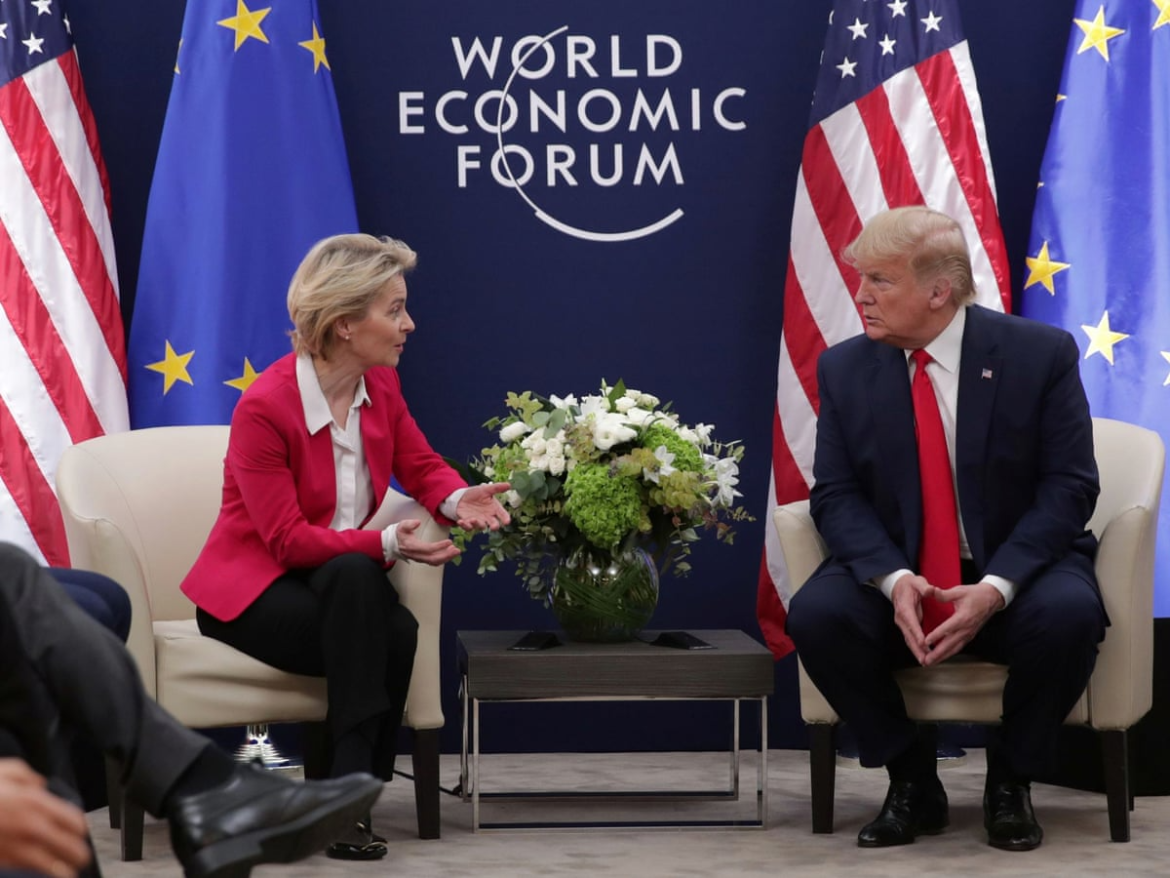The transition of power in the United States with Donald Trump stepping into office has sparked discussions across global political and economic circles. While many nations observe with caution, the European Union (EU) has made a bold and optimistic declaration—it is ready to do business with the world. This announcement is not only a testament to the EU’s resilience but also signals a renewed commitment to its global partnerships.
This blog will explore how the EU is positioning itself as a proactive leader in global trade, what this means for international businesses, and how future collaborations will shape geopolitical landscapes in the Trump era.
An Optimistic EU in an Uncertain World
The election of Donald Trump came with promises of reshaping U.S. international policies, rolling back globalization, and emphasizing “America First.” Naturally, this raised questions about the future of U.S. partnerships with major economies, including those of the EU. However, rather than retreat, the EU has used this moment of uncertainty to reiterate its commitment to global trade and international cooperation.
With significant trade agreements already in place and others in the pipeline, the EU’s proactive stance is a clear message to global businesses and policymakers. Key EU officials have emphasized the importance of keeping global markets open despite growing protectionist sentiments in certain nations. Their message? The EU is a stable and reliable partner for global economic growth.
What This Means for Global Trade
The EU’s readiness to do business with the world comes with several implications for international trade:
1. Solidifying Trade Agreements
The EU currently holds numerous free trade agreements (FTAs) with partners like Canada (CETA), Japan, and South Korea. These agreements highlight the EU’s strategy to strengthen trade ties amid changing U.S. policies. With negotiations underway for deals with Australia, New Zealand, and other regions, these partnerships provide businesses within and outside the EU access to one of the largest economic blocs in the world.
For example: The Comprehensive Economic and Trade Agreement (CETA) with Canada removed 98% of tariffs between the EU and Canada, boosting trade opportunities for both regions.
2. Opportunities for Exporters
Exporters and businesses in sectors such as automotive, technology, and agriculture can thrive as the EU ensures smoother market access. For instance, the EU’s harmonized regulations across member states eliminate many trade barriers, fostering seamless operations for exporters.
3. Safeguarding Multilateralism
While Trump’s rhetoric suggested reduced reliance on multilateral organizations like the World Trade Organization (WTO), the EU has affirmed the importance of these institutions. A stable, rules-based trading system benefits global businesses by promoting fair competition and resolving disputes efficiently.
The EU’s commitment reinforces its position as a leader advocating for transparency and collaboration on the global stage.
How the EU is Different from the U.S. Approach
Under Trump, the U.S. adopted a more inward-looking agenda. Priorities included withdrawing from multilateral agreements like the Trans-Pacific Partnership (TPP) and renegotiating existing deals, as seen with NAFTA becoming the USMCA. This shift toward bilateralism contrasted starkly with the EU’s continued focus on multilateral agreements.
The EU’s approach ensures that countries and businesses worldwide, particularly those from emerging economies, remain engaged in an inclusive global trading network. This consistency further boosts the EU’s credibility as a champion of free trade.
EU’s Resilience in Driving Innovation and Growth
Beyond trade agreements, the EU has been investing heavily in initiatives that solidify its role as a global economic powerhouse:
1. Emerging as a Green Leader
The European Green Deal positions the EU as a sustainable economic giant. Businesses investing in clean technology, renewable energy, and sustainability programs will find robust support in the EU. The Green Deal’s focus on transitioning to a carbon-neutral economy by 2050 aligns with the modern business world’s need to balance profit with planet-centered goals.
2. Tech-Driven Economy
The EU has set ambitious goals to lead in technology and innovation. By creating a Digital Single Market, the EU has significantly reduced digital barriers across member states, encouraging startups and tech giants to thrive within its borders. Initiatives such as Horizon Europe, a €95.5 billion research and innovation fund, ensure that businesses and innovators receive the support needed to stay competitive globally.
Crystal clear message? The EU is harnessing technology to keep businesses connected and competitive.
3. Preparedness for Global Challenges
The COVID-19 pandemic, Brexit, and changing U.S. political dynamics have presented unique challenges. Yet the EU has adapted swiftly, implementing support mechanisms for economies and businesses. Such actions underscore its role as a dependable partner in times of uncertainty.
What This Means for Your Business
If you’re a business professional or organization looking to explore or expand operations in global markets, the EU’s strong, stable stance on global trade creates a world of opportunities:
- Market Access: Whether it’s exporting goods or investing in European ventures, the EU ensures a transparent and predictable trade environment.
- Collaborative Growth: Businesses benefit from partnerships fostered through EU-backed agreements and initiatives.
- Sustainable Innovation: Companies working on green projects or innovative technologies can leverage EU funding and policy support.
Moving Forward in the Trump Era
While the Trump administration emphasized reshuffling U.S. alliances, the EU has doubled down on its commitment to stability and collaboration. Its willingness to engage with both emerging and advanced economies demonstrates the foresight of a bloc that values partnerships as a driver of growth, innovation, and long-term sustainability.
Global businesses must recognize that the EU, with its balanced policies and proactive approach, offers a strategic gateway to international markets.
A Call to Action for Forward-Thinking Businesses
Are you ready to leverage the EU’s vast potential for your business growth? Over the years, we’ve seen that adaptability, innovation, and partnerships are the cornerstones of success in the global marketplace. The EU’s commitment to openness provides the blueprint ambitious businesses need to thrive in a changing world.
Stay informed, stay engaged, and position your organization for success. The European Union is not just open for business—it’s shaping the future of the global economy. Now is the time to act.

